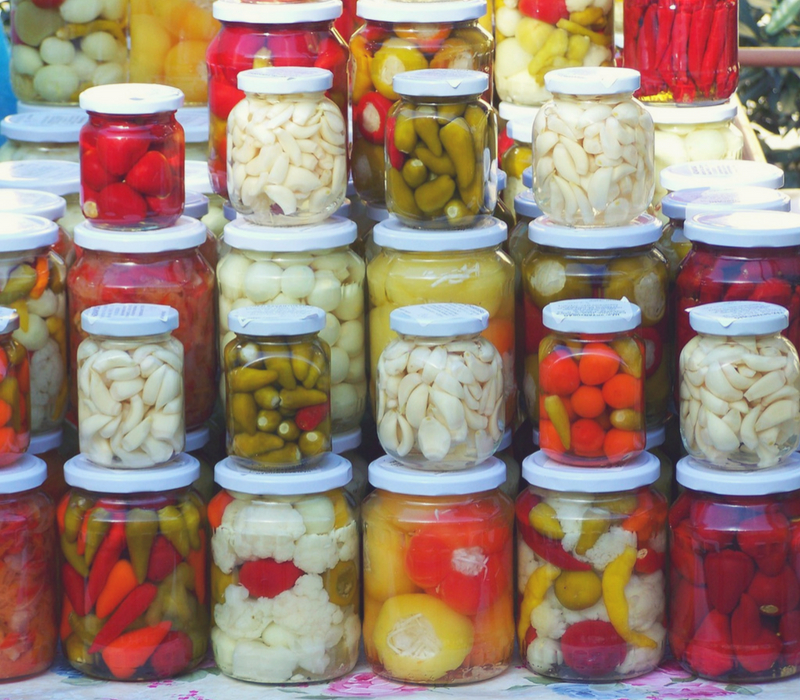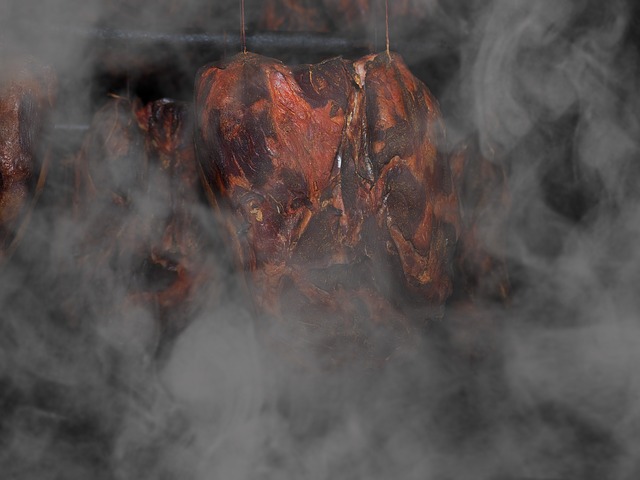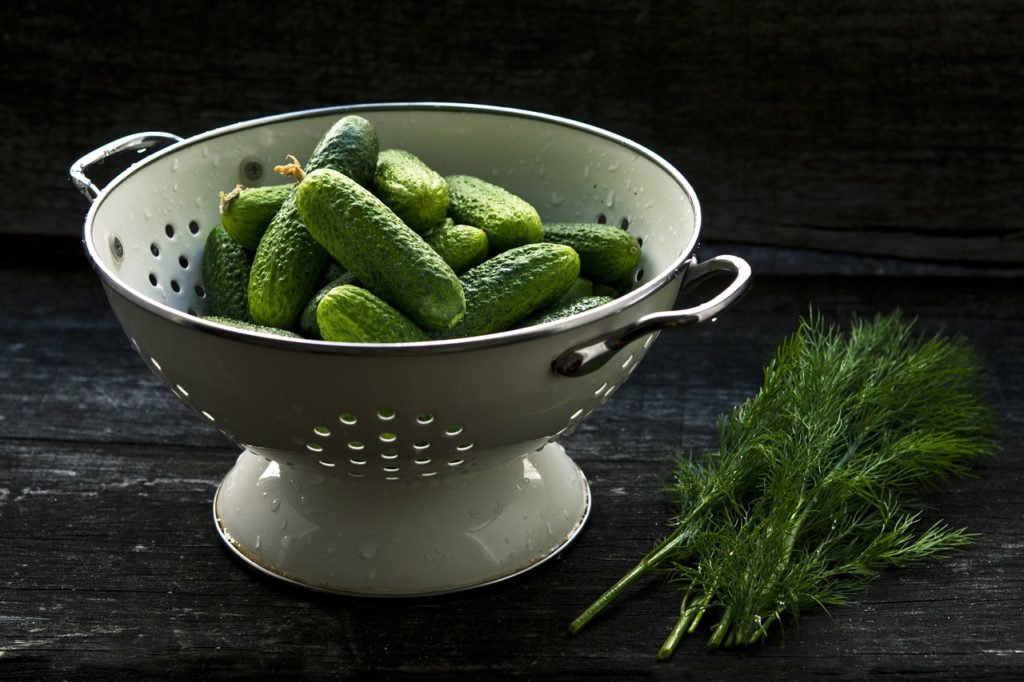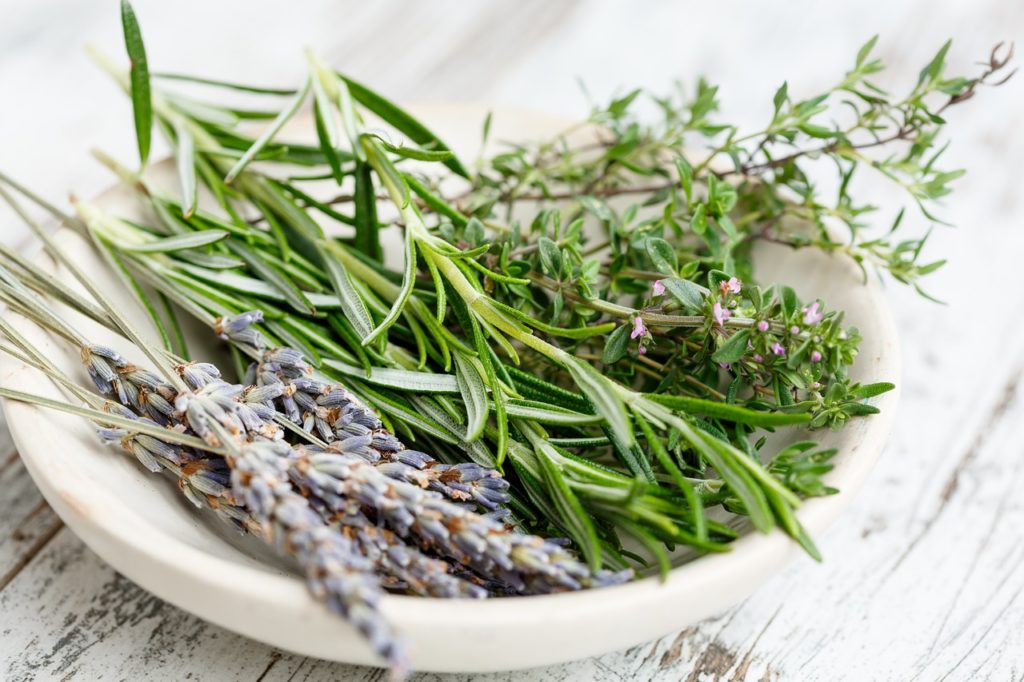It is human nature to define things we come into contact with, it seems like everyone know what a pickle is but how do we define a pickle exactly.
At its most basic a pickle is any food that preserved with an acid.
This can include:
- Dill pickles
- Pickled onions
- Chutney
- Sauerkraut
- Relish
amongst many other preserves.
Although in the US the word pickle has become synonymous with pickled cucumbers or dill pickles there is a whole spectrum of produce and processes that can be called pickles so let’s take a closer look.
Table of Contents
Pickles Are Foods Preserved In Acid
Pickles are by most definitions; foods that are preserved in a low pH solution. This means they are most likely sour to the taste. The way we can make foods sour has a couple of different methods so this may lead to confusion into what pickles actually are.
Pickled Using Vinegar
One of the simplest ways of making pickles is to take the produce that you want to preserve and place it in a vinegar solution. As we all know vinegar is acidic with pickling vinegar having a pH of around 2.4.
When we immerse foods like vegetables, whether they are cucumbers, onions or a mixture of vegetable in vinegar. The low pH means bacteria cannot grow and, of course, the vegetables take on the flavour of the vinegar.
Pickles made using vinegar like this are usually heated which makes them last even longer and stops any enzymes within the vegetables themselves spoiling the taste or texture.
In this case, then we can consider the question “What is a pickle?” to be any food that is preserved in vinegar. This isn’t the only way we can make pickles, however, there are other methods of preserving food that is considered pickled and it is quite a different process.
Pickling Using Brine
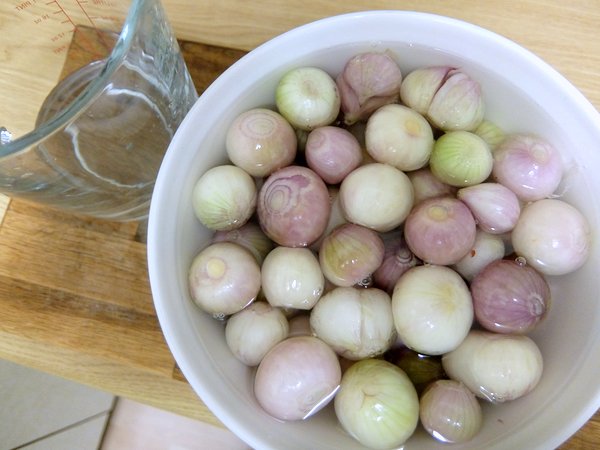
Pickles are also made using salt alone or a solution of salt and water. This method is called brining and is often called ferments. The key aspect of this process is that the use of salt in the right quantities will create an acidic environment given enough time due to bacteria that can grow and produce acid. This acid is what creates the pickle.
Vegetables are most commonly fermented to make pickles in this way. The most famous, of course, is cucumbers which have become synonymous with the term “pickle”. Almost any vegetable is capable of being pickled in brine or with salt.
The process that occurs when vegetables are brined is that the salt draws moisture out of the produce and the high salinity prevents bacteria from spoiling the vegetables in the short term. A special family of bacteria called lactobacillus are able to thrive in this salty environment and lactobacillus bacteria is on all fruits and vegetables.
The pH of Pickles
These Lactobacillus bacteria consume some of the naturally occurring sugars in the vegetables and the byproduct of this is that they produce lactic acid and carbon dioxide. Over time the lactic acid they produce builds up and the pH of the brine drops lower.
The vegetable ferments can achieve a pH of around 3. At this level, there is a noticeable acidity and sourness. As well as this the pH is low enough to prevent any other bacteria from growing of surviving. A pH of 4.3 or lower is all that is required to prevent any harmful bacteria from growing so these lacto-fermented pickles are safe to eat many months after being made.
Salt In Pickles?
Salt is a key ingredient in fermented pickles in the fact that it stops produce from spoiling in the short term. It does this by drawing moisture from the food not by affecting the pH, salt alone does not affect the pH of water.
The acid is created by lactic acid producing bacteria and this is what is key in creating a pickle.
Acid Is Key To What A Pickle Is
Pickles come in all shapes, sizes and varieties but to simplify things we can establish that they all use an acid to preserve them. How this acid is created, whether it is vinegar or it is acid created by fermentation of the produce being pickled it doesn’t matter.
This acid in turn is usually a means to preserve the pickled vegetables to make them last longer without spoiling. There are a few exceptions to this rule but mainly most traditional pickles will have a longer shelf life than fresh food.
